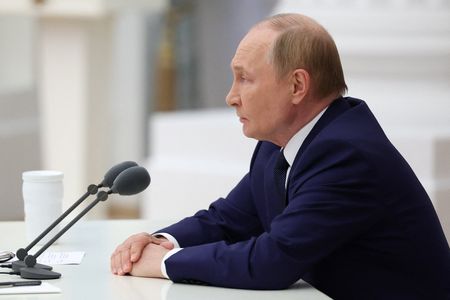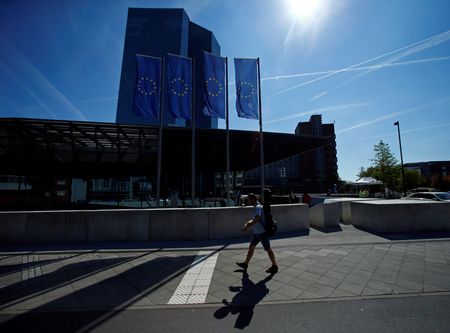By Christoph Steitz and Tom Käckenhoff
FRANKFURT/DUSSELDORF (Reuters) -German conglomerate Thyssenkrupp cut its full-year sales and investment forecasts on Thursday, blaming weak demand for its products as U.S. President Donald Trump’s import tariffs disrupt global trade in autos, machines and building materials.
Weakness among automotive clients, who account for around a third of Thyssenkrupp’s customer base and are being hit by U.S. import levies, was a major factor in the decision, as well as lower than expected third-quarter profits, the group said.
“Trade disputes had a significant impact on our quarter and also left some skid marks in macroeconomic terms,” Chief Financial Officer Axel Hamann said.
“Many companies, especially customers, are waiting to see what happens or are taking a cautious approach,” he told journalists.
The company, with a broad portfolio that includes steelmaking and submarine production, now expects sales to fall by 5% to 7% during its fiscal year to September 30. It previously expected sales to drop by up to 3%.
Investment plans were cut to between 1.4 billion and 1.6 billion euros ($1.6-$1.9 billion), from 1.6-1.8 billion euros.
Thyssenkrupp said the introduction of tariffs had curbed international trade and hit global supply chains, and that things could get worse should the Israeli-Palestinian conflict in the Middle East escalate further.
“The past quarter was characterised by enormous macroeconomic uncertainty,” CEO Miguel Lopez said.
Shares in the company, which is in the process of spinning off its submarine division TKMS in October, were 8.8% lower at 1045 GMT.
Full-year adjusted earnings before interest and tax are now forecast to be at the lower end of the 0.6 billion to 1 billion euros guidance range, the company said.
In its fiscal third quarter from April to June, adjusted EBIT rose 4% to 155 million euros, missing the 174 million average estimate in an analyst poll provided by the group.
($1 = 0.8544 euros)
(Reporting by Christoph Steitz and Tom Kaeckenhoff. Editing by Rachna Uppal and Mark Potter)











